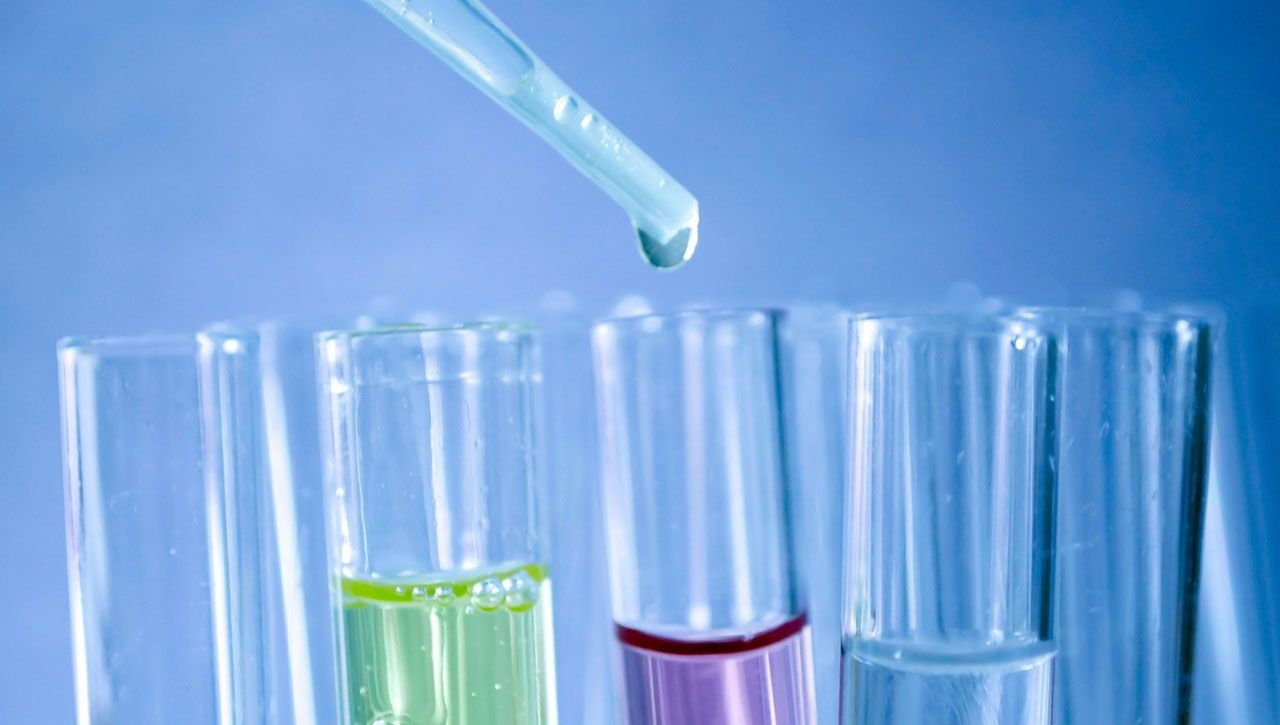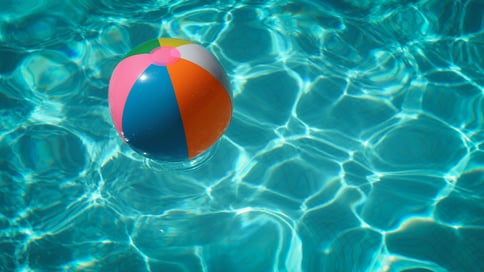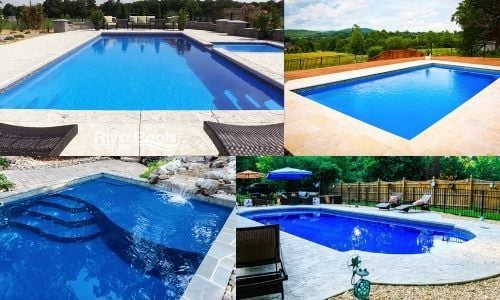How to Keep Your Pool Water Clean and Prevent Pool Parasites
September 11th, 2019
3 min read

You may have heard the news that the lack of maintenance in public pools has led to bacteria and pool parasites running amuck in the swim water all summer. Yeah, gross.
If you never had a good reason to invest in your own swimming pool, you might be thinking about it now.
At River Pools, we specialize in manufacturing high-quality fiberglass swimming pools, but one of our main goals is to provide educational resources for all people with swimming pools as well as swimming pool shoppers.We’re going to explain the basics to help you ensure that your water is safe for swimming whether you have a swimming pool now or you plan to get one in the future.
So, let’s start with breaking down how to maintain the pool’s chemistry.
Pool Chemistry
The chemicals in your pool are super important to the cleanliness of the water. There are actually several chemicals that need to be managed to keep the water safe for both you and for the longevity of the pool.
Specifically, you’ll need to test the pool for:
pH 7.2-7.8
pH determines how acidic vs alkaline the water is. If the levels are too high, you’re swimming in bleach water. If the levels are too low, there's way too much acid in the water for safe swimming. If the number in just right, you can drink the water. Kind of scary, right?
Alkalinity- 80-120 ppm
Alkalinity measures carbonates, bicarbonates, and hydroxides in the water. It’s important because if the levels are too high, you’ll find it difficult to adjust the pH levels. Too low and the pH levels will change so fast it’ll be difficult to level them out.
Chlorine 2.0-3.0 ppm
Whatever chlorine substance you choose for your pool, it’s likely mixed with other components because too much straight chlorine can be dangerous. If the levels of chlorine are too high, it could quickly fade the colors of the pool and it could cause skin and eye irritation. Too little chlorine and that’s when the bacteria and germs start floating around.
Cyanuric Acid 20-50 ppm
Cyanuric Acid (CYA) protects the chlorine from getting absorbed by the sun. Not enough and your levels of chlorine will get too low. Too much and it throws the pH levels off.
Calcium Hardness 200-400 ppm
It literally means how soft or hard the water is. If the water is soft, it means it’s lacking calcium and will look for it elsewhere, perhaps the pool walls. Not good. If it’s too hard, it causes the pool water to become cloudy.

All of these components work together to form perfect chemistry which means clean, safe, pretty pool water for you. It’s a balancing act because if one measurement is off, it could throw all the others off, making your pool appear more like a swamp.
The great news: all you have to do is purchase test strips, liquid testing kits, or digital testers and test the water about once a week. Then add chemicals accordingly. Not so bad, right?
Pool Filtration System
A filter will help to remove impurities and cleanse the water so that it’s safe to swim in (and free of those gross parasites). Running your filter can also help to maintain the chemical levels.
Water Pump
Though a water pump does not maintain the chemicals and clean the water directly, it is used in conjunction with a filtration system to help circulate the water.
Pool Cleaner
Think pool vacuum. If you’re really worried about bacteria and parasites, you could purchase a robotic pool cleaner as an added security. This would be in addition to the filtration system and water pump and can take care of any lingering particles floating around. Alternatively, you could install an in-floor pool cleaning system while building your pool to clear dirt and debris automatically.
UV Systems and Pool Parasites
A little weary of using too many chemicals? You could add a pool UV system which cleans your pool almost completely free of chemicals. You’ll still have to use some chlorine to combat those nasty bacteria and parasites, but you’ll eliminate most of the chemicals and the hassle that comes with them.
Other Pool Sanitation Options
Some other systems to take into consideration (though less popular) are microbe disinfection, ionization, saline chlorination (saltwater system), and electronic oxidation units. All of these methods can help to keep your pool sanitized.
How to Keep the Pool Water Clean and Prevent Pool Parasites - Best Practices
Here are some things to keep in mind for the sanitation of your pool:
- Keep the chemicals balanced
- Check chemical levels every week
- Clean out your filtration system
- Keep your pool free of debris
Keeping up with maintenance on your pool can seem intimidating, but as long as you adhere to a normal schedule, it is completely manageable and totally worth it.

At River Pools, we manufacture world-class fiberglass swimming pools for customers across North America. If you're still shopping around for a swimming pool, check out our catalog of models and try out our fiberglass pool cost calculator today to see if a durable fiberglass pool is right for you.
If you're not sure which inground swimming pool type is best for your family, be sure to download our free ebook below explaining the key differences between fiberglass, concrete, and vinyl liner pools.
Up Next:
What is a Natural Pool? Filtration, Costs, and Pros and Cons
Inground Pool Shopping: Can You Buy a Pool Online?
Marcus Sheridan is a co-founder of River Pools® Virginia and a leading voice in the fiberglass pool industry, known nationally for his commitment to educating homeowners about inground pools. Over the past two decades, Marcus has helped thousands of families confidently navigate the pool buying process with transparency and trust. His straightforward, educational approach has helped make River Pools a go-to resource for fiberglass pool buyers across the country. When he’s not writing or speaking about pools, Marcus helps businesses embrace honest communication to better serve their customers.
Topics:

